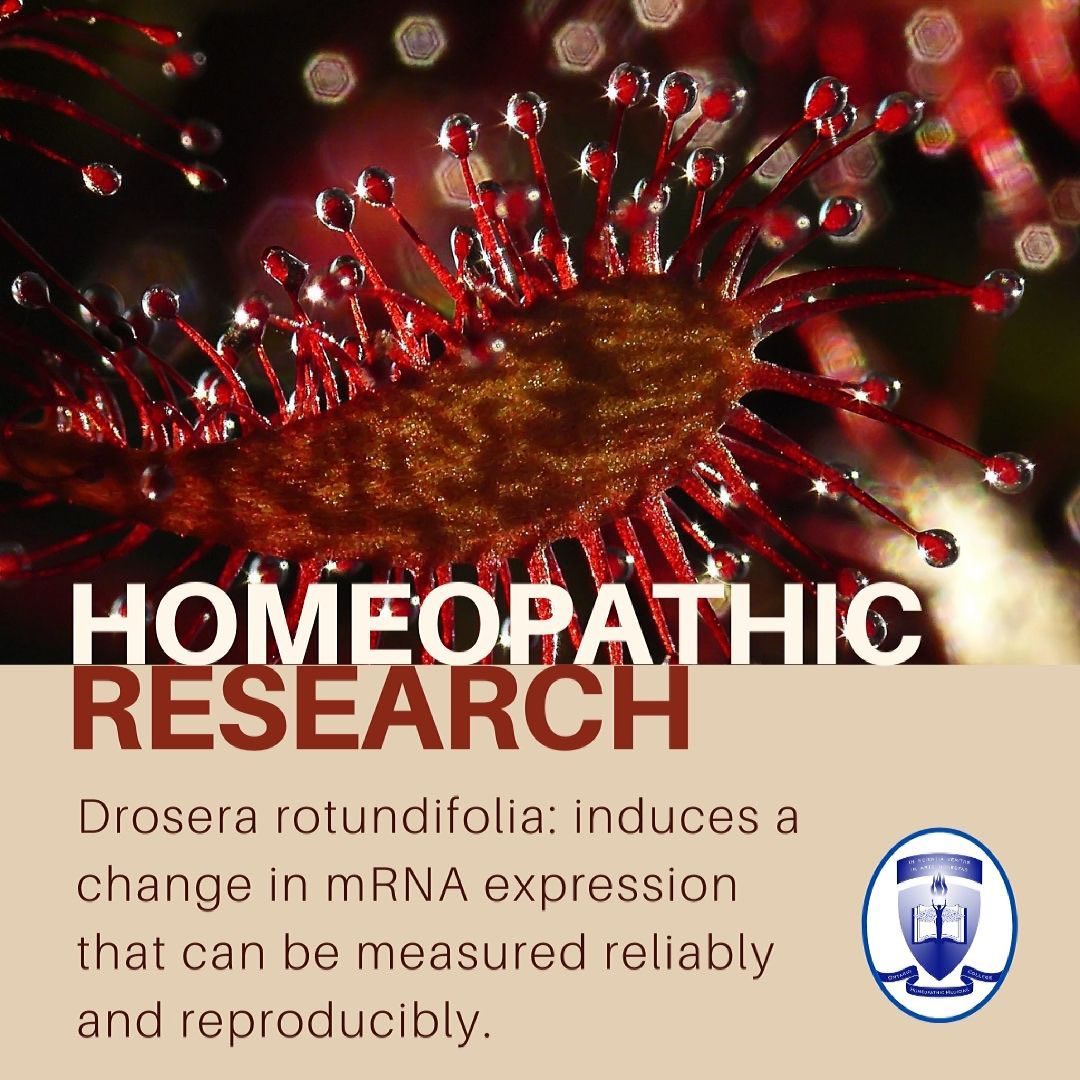Drosera can induce a change in mRNA expression that can be measured reliably

In this study, the biological functions of D. rotundifolia were explored in vitro following the treatment of bronchial epithelial cells, which are the potential targets of the pharmacological effects.
This study shows that Drosera can induce a change in mRNA expression that can be measured reliably and reproducibly. Low doses and homeopathic dilutions are now being investigated by means of molecular biology techniques for differential gene expression analysis and bioinformatics.
Screening in bronchial cells with RNA-seq analysis showed that low amounts of D. rotundifolia at a 3× dilution, which represents a dose commonly used in homeopathic and phytotherapeutic syrups, changed the expression of dozens of genes after 3 h, and this effect was amplified after 6 h of treatment. Validation with RT-qPCR confirmed the differential expression of the genes of interest and showed that after 6 h of D. rotundifolia 3× treatment, there was an increase in mRNA expression. Since RT-qPCR sensitivity is higher than that of RNA-seq, such results support the findings of the RNA-seq analysis, suggesting that treatment with D. rotundifolia × can be followed-up by the investigation of the expression of these genes.
In our experiments, D. rotundifolia 3× did not impair cell viability or adherence, suggesting that this dilution is safe when tested directly in cell culture. The same dilution exerted a stimulatory effect on the expression of several genes, . D. rotundifolia 3× works mainly as a stimulant and not as an inhibitor of cell functions.
Recommended Posts

Exploring the Lesser-Known Aspects of Aethusa Cynapium: Its Relationship with the GI Tract and Animal Lovers
March 27, 2024

Calc-sulph Tissue Salts is considered “the Blood Cleanser”
April 20, 2021

Ferrum Metallicum is a great Homeopathic Remedy for Anemia
April 20, 2021
